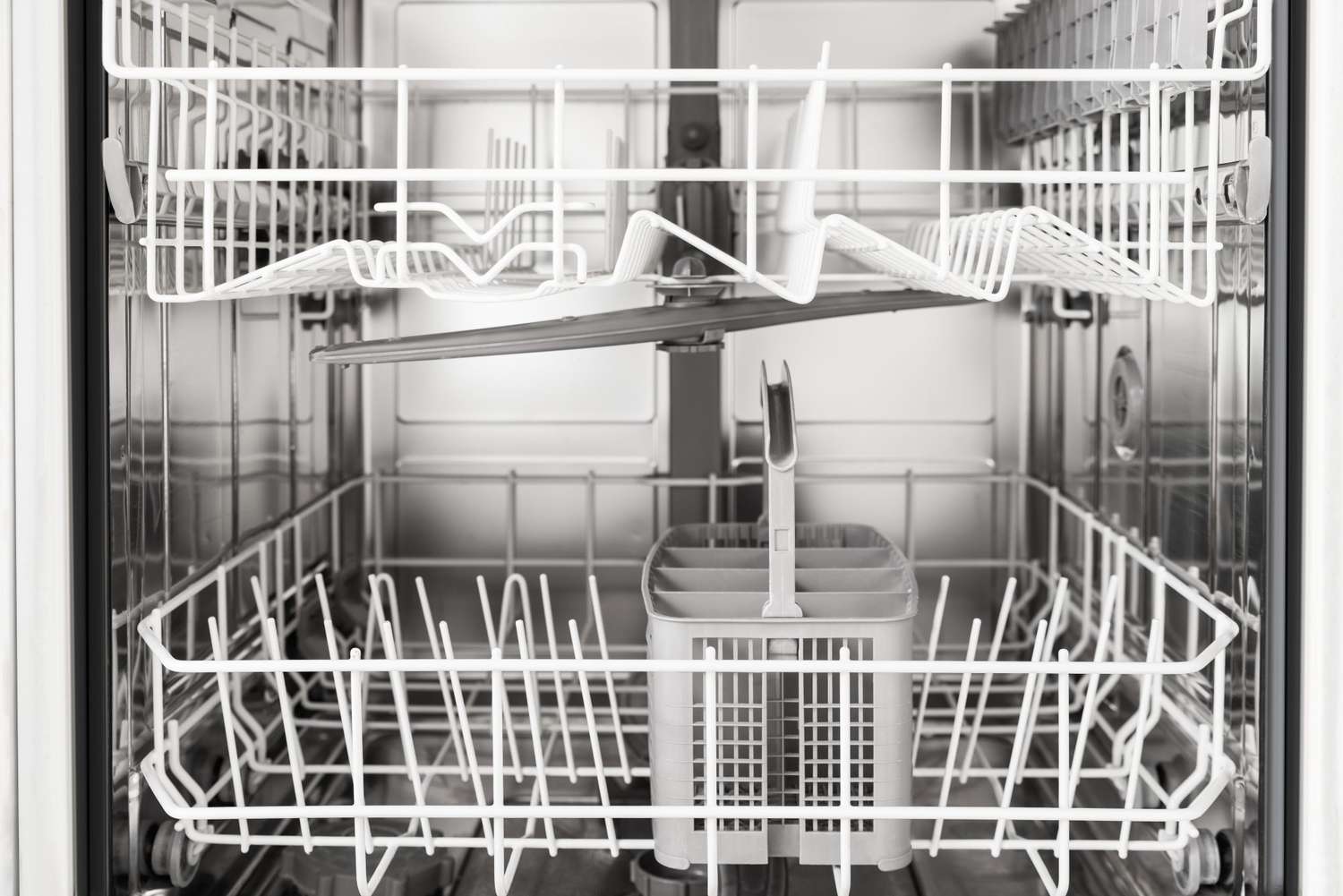
Introduction
Bleach is a common household staple that is often used for its disinfecting and cleaning properties. However, while bleach can be effective in many situations, it is not always the best choice for every task. In particular, using bleach in a dishwasher can be hazardous and can even damage your appliance.
Dangers of Using Bleach in Dishwashers
While bleach may seem like a quick and easy solution for sanitizing your dishwasher, its use can lead to several potential problems.
-
Corrosion of dishwasher components: Bleach is a corrosive substance that can damage metals, including stainless steel, which is a common material used in dishwasher components. Over time, bleach can cause these components to rust, pit, and eventually fail.
-
Release of harmful fumes: When bleach is heated, it can react with moisture to produce chlorine gas. This gas is toxic and can cause respiratory problems, including coughing, wheezing, and shortness of breath. Inhaling high levels of chlorine gas can even be fatal.
-
Damage to dishes: Bleach can discolor and etch dishes, especially those made of porcelain or delicate materials. The harsh chemicals in bleach can strip away the protective glaze on these dishes, making them more susceptible to staining and breakage.
-
Negation of dishwasher detergent: Bleach can interfere with the effectiveness of dishwasher detergent. The high pH of bleach can neutralize the cleaning agents in detergent, reducing its ability to remove grease, food particles, and other debris.
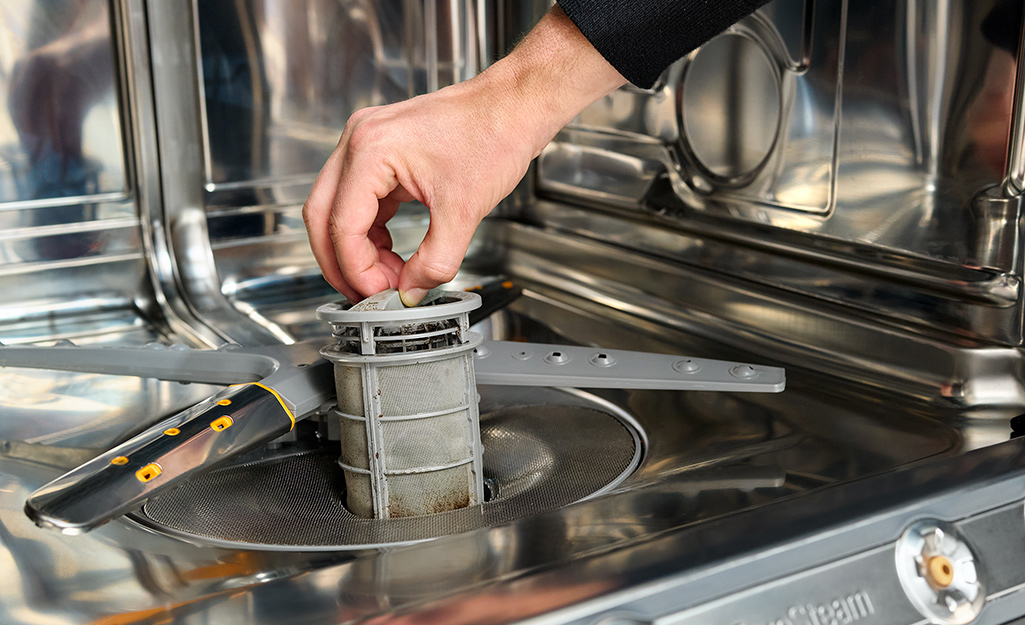
Alternative Methods for Cleaning Dishwashers
Fortunately, there are several safe and effective alternatives to bleach that can be used to clean your dishwasher. These methods are not only safer for your appliance and your health, but they can also be just as effective in removing dirt, grime, and odors.
-
Vinegar: White vinegar is a natural deodorizer and mild acid that can help remove hard water stains, grease, and mildew from your dishwasher. Simply pour a cup of white vinegar into the bottom of the dishwasher and run a hot water cycle.
-
Baking soda: Baking soda is a natural abrasive and deodorizer that can help clean the dishwasher interior and remove stubborn stains. Sprinkle a box of baking soda onto the bottom of the dishwasher and run a hot water cycle.
-
Lemon juice: Lemon juice is a natural disinfectant and can help brighten dishes and remove limescale buildup. Pour a cup of lemon juice into the bottom of the dishwasher and run a hot water cycle.
-
Dishwasher cleaner tablets: Commercial dishwasher cleaner tablets are specially formulated to clean and maintain dishwashers without the harsh effects of bleach. These tablets typically contain a combination of detergents, degreasers, and deodorizers that can effectively clean your dishwasher.
Steps for Cleaning a Dishwasher with Bleach-Free Alternatives
Here is a step-by-step guide on how to clean your dishwasher using bleach-free alternatives:
-
Remove dishwasher racks and filters: Empty the dishwasher and remove the racks and filters. Wash the racks and filters with hot, soapy water to remove food debris and grease.
-
Apply cleaning solution: Pour white vinegar, baking soda, lemon juice, or dishwasher cleaner tablets into the dishwasher.
-
Run a hot water cycle: Run the dishwasher on the hottest cycle without adding detergent.
-
Wipe down dishwasher interior: After the cycle is complete, wipe down the interior of the dishwasher with a clean cloth to remove any remaining residue.
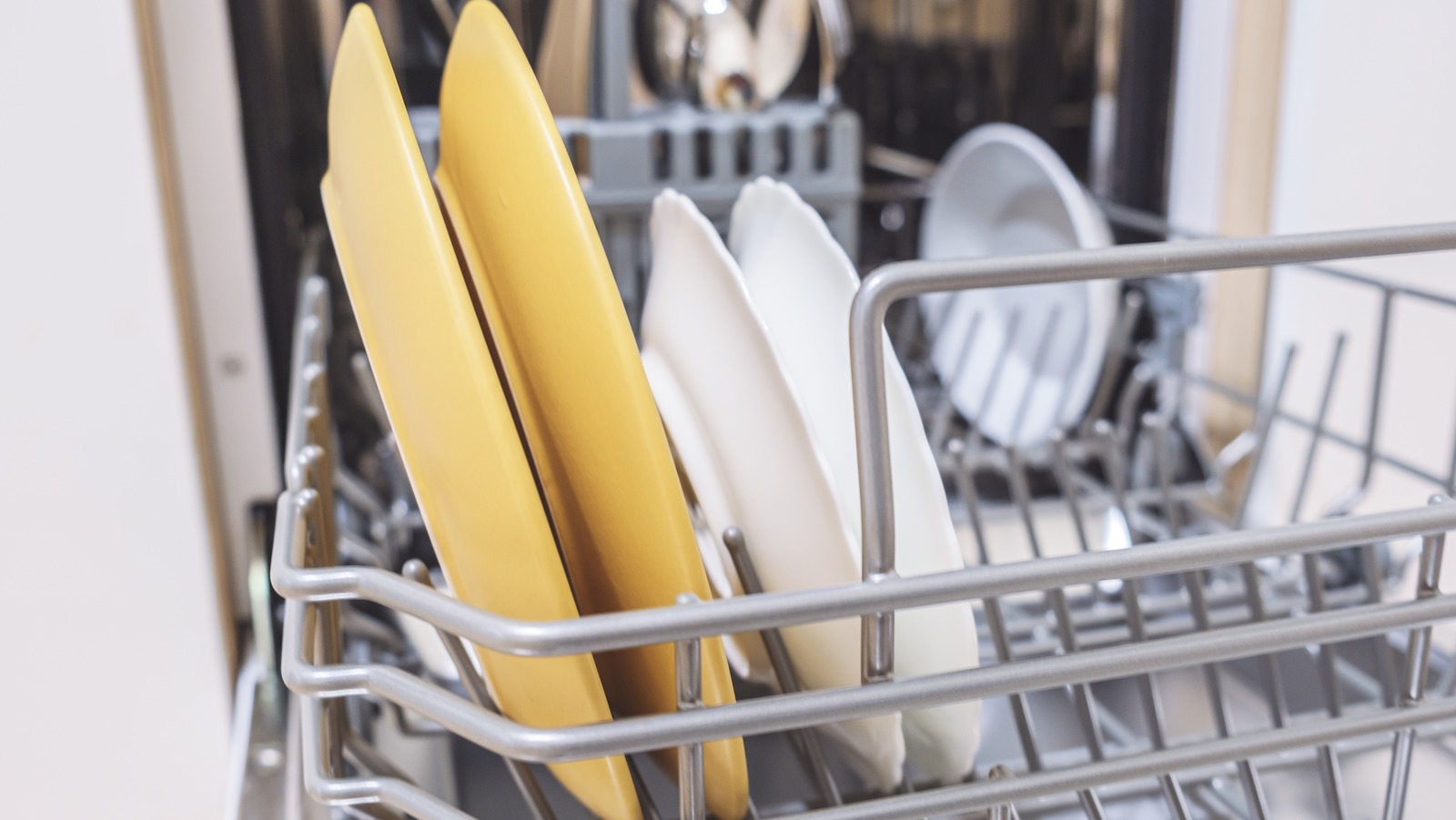
Additional Tips for Maintaining a Clean Dishwasher
In addition to using bleach-free cleaning methods, there are a few other things you can do to keep your dishwasher clean and functioning properly:
-
Regularly clean dishwasher filters: Clean the dishwasher filters every few weeks to prevent grease buildup and clogging.
-
Use the right amount of detergent: Use the recommended amount of dishwasher detergent to ensure effective cleaning without leaving residue.
-
Avoid overloading the dishwasher: Overloading the dishwasher can prevent dishes from getting clean and can also lead to clogging.
-
Wipe down spills promptly: Wipe up spills inside the dishwasher as soon as they occur to prevent food stains and odors.
-
Run a vinegar rinse cycle periodically: Run a vinegar rinse cycle every month or two to help remove odors and keep the dishwasher clean.
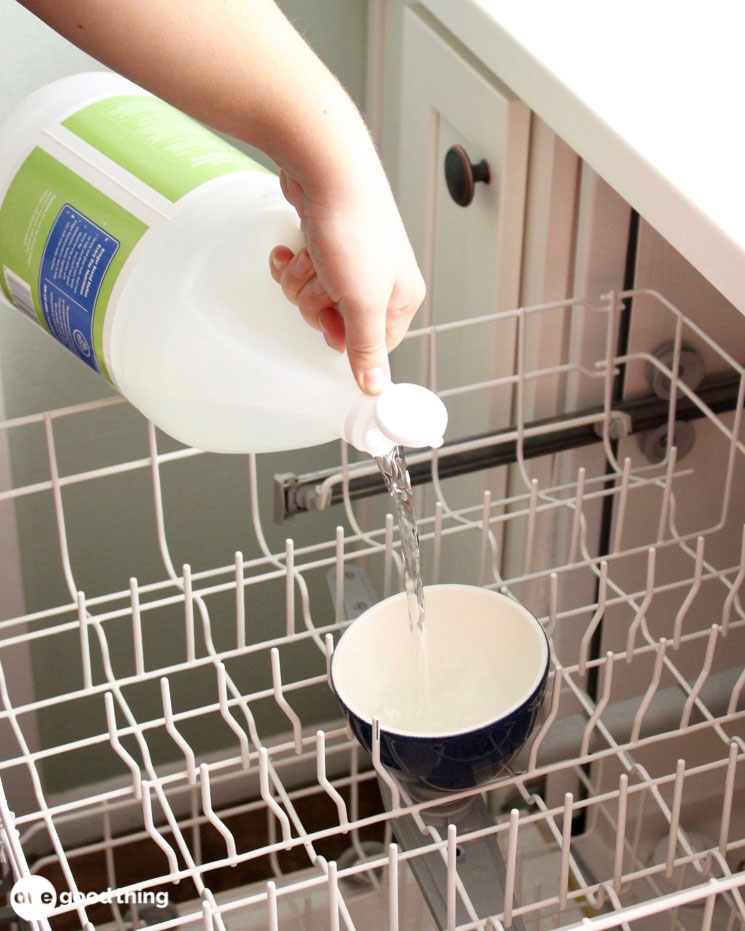
Conclusion
While bleach may be a tempting solution for cleaning your dishwasher, it is important to be aware of the potential hazards it can pose. Using bleach-free alternatives and following regular maintenance practices can help you keep your dishwasher clean and functioning properly without putting your appliance or your health at risk.
Part VIII: Addressing Common Myths About Dishwasher Cleaning
There are a few common misconceptions surrounding dishwasher cleaning. Let’s clear them up to ensure you’re using the safest and most effective methods:
-
Myth 1: Dishwasher detergent is enough to sanitize dishes. While dishwasher detergents do a good job of removing dirt and grease, they may not be sufficient for complete sanitization. If you require a high level of disinfection, consider rinsing dishes with hot water or using a dishwasher sanitizing cycle (if your model offers one) after cleaning with bleach-free alternatives.
-
Myth 2: Leaving the dishwasher door closed traps moisture and promotes mold. While it’s true that a damp environment can encourage mold growth, simply leaving the door closed for a short period after a cycle shouldn’t be a major concern. Leaving the door slightly ajar for a few minutes after the cycle allows steam to escape, but for optimal drying, it’s best to completely open the door once the dishes have cooled slightly.
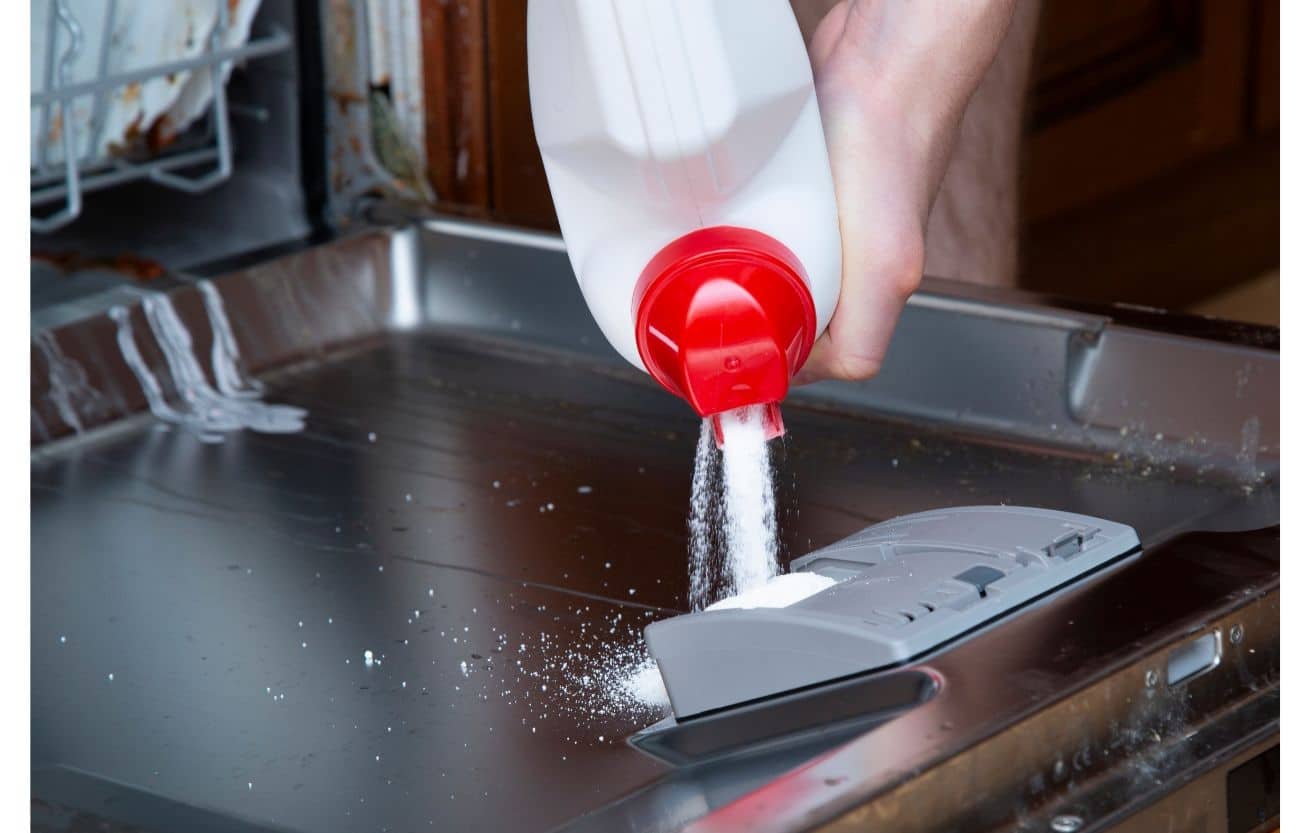
Part IX: When to Call a Professional
In most cases, you can effectively clean and maintain your dishwasher using the methods described above. However, there are situations where professional help may be necessary:
-
Persistent clogs: If your dishwasher filter is constantly clogged or the dishwasher itself is experiencing drainage issues, there may be a deeper problem within the appliance’s plumbing. Consulting a qualified appliance repair professional can help diagnose and fix the issue.
-
Unusual noises or leaks: If your dishwasher is making loud, unusual noises during operation, or if you notice leaks around the appliance, it’s important to call a professional for repairs. Ignoring these signs can lead to further damage and potential safety hazards.
-
Dishwasher not heating properly: If your dishes are consistently coming out greasy or lukewarm, it could indicate a problem with the dishwasher’s heating element. A qualified technician can diagnose and fix the heating element or any other component causing the issue.